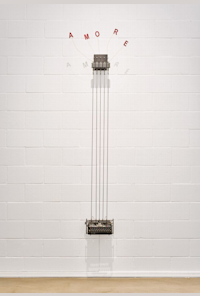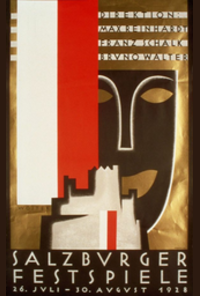On February 20, 1816, shortly before the climax of the carnival week, Il barbiere di Siviglia by Gioachino Rossini was premiered at the Teatro Argentina in Rome . The new opera was very appropriate to the unleashed atmosphere of the Roman carnival: its delight in masks and disguises, parody and grotesque, staging and pretense breathes the spirit of the carnival through and through. This is of course also due to the literary model, Beaumarchais' Le Barbier de Séville, an intriguing comedy whose effect is fed by rapid pacing, complications and witty dialogue and in whose clearly contoured characters the figure types of the Commedia dell'Arte - such as the "Dottore" or the imaginative servant - shine through as ancestors. Spanish genres, which in turn were influenced by Italian impromptu comedy, also left their mark on Beaumarchais' play, not least in the figure of the barber who acts as a mediator. Figaro's name, in turn, could be derived from the Spanish "pícaro", those "crooks" who populated the picaresque novels as witty heroes. Rossini's librettist, Cesare Sterbini, emphasized the composer's intention of "bold rivalry with the immortal author who preceded him" — that is, with Giovanni Paisiello and his Barbiere di Sivigliaof 1782 — to get out of the way. Nevertheless, the new operatic version of the material inevitably competed with the earlier one and soon eclipsed it forever. Verdi was convinced that Rossini's Barbiere "is the most beautiful opera buffa there is because of the wealth of genuine musical ideas, the comic verve and the truthfulness of the declamation". In comparison to the "naturalness" of Paisiello's opera, everything in Rossini's work appears energized, sharpened or exaggerated, charged with drastic liveliness and theatrical conciseness. And so Rossini's comedy is closer to its origins in the Commedia dell'Arte than the French play itself.
Beaumarchais knew only too well how familiar the basic plot, which has been staged countless times since antiquity, is, and his summary was correspondingly brief: “An old man in love wants to marry his wards tomorrow; a young, more cunning lover forestalls him and makes her his wife the very same day, right under his guardian's nose and in his guardian's house.” What is conspicuously missing from this description is the title character: Figaro, who helps Count Almaviva, the adored Rosina to win her over and to outwit her guardian, Dottor Bartolo, who in turn has allied himself with the scheming music teacher Basilio.
Judging by Figaro's entrance aria, which oozes self-confidence and vitality, nothing can be achieved in Seville unless the "factotum of the city" has a hand in it. In the duet with the Count, we then experience how “at the thought of that metal” — of gold as a reward — Figaro’s spirit is transformed into a “volcano” and ideas spring up: Almaviva should disguise himself as a soldier and with a billeting card in Bartolos Appearing in the house, and drunk at that... The ideas are by no means as "delicious" as their inventor believes, but without a doubt they determine the course of events to a large extent, yes, even more: Figaro seems like a co-author of the play himself, especially since he repeatedly appears steps out of the plot in order to comment on it from a distance, thus allowing it to appear as theater within a theatre.Il barbiere di Siviglia characterizes, Rolando Villazón will expand his production - and thus open up new possibilities for comedy and poetry. There will be an additional protagonist, embodied by the great (and world's fastest) quick-change artist Arturo Brachetti, whose work not least draws on the tradition of the Commedia dell' Arte: a daydreamer who likes to take refuge in old films, whereby a very certain diva he was particularly fond of. But what if the film characters suddenly step out into reality to find themselves in an opera?








